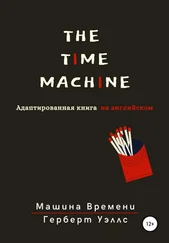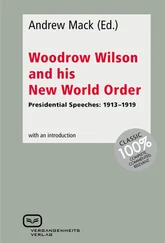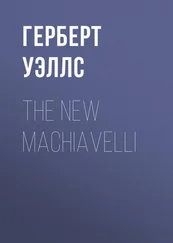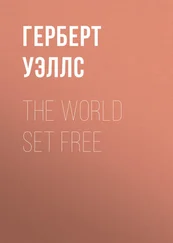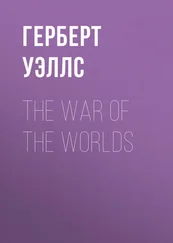Герберт Уэллс - The New World Order
Здесь есть возможность читать онлайн «Герберт Уэллс - The New World Order» весь текст электронной книги совершенно бесплатно (целиком полную версию без сокращений). В некоторых случаях можно слушать аудио, скачать через торрент в формате fb2 и присутствует краткое содержание. Год выпуска: 1940, Жанр: Политика, Публицистика, на английском языке. Описание произведения, (предисловие) а так же отзывы посетителей доступны на портале библиотеки ЛибКат.
- Название:The New World Order
- Автор:
- Жанр:
- Год:1940
- ISBN:нет данных
- Рейтинг книги:4 / 5. Голосов: 1
-
Избранное:Добавить в избранное
- Отзывы:
-
Ваша оценка:
- 80
- 1
- 2
- 3
- 4
- 5
The New World Order: краткое содержание, описание и аннотация
Предлагаем к чтению аннотацию, описание, краткое содержание или предисловие (зависит от того, что написал сам автор книги «The New World Order»). Если вы не нашли необходимую информацию о книге — напишите в комментариях, мы постараемся отыскать её.
The New World Order — читать онлайн бесплатно полную книгу (весь текст) целиком
Ниже представлен текст книги, разбитый по страницам. Система сохранения места последней прочитанной страницы, позволяет с удобством читать онлайн бесплатно книгу «The New World Order», без необходимости каждый раз заново искать на чём Вы остановились. Поставьте закладку, и сможете в любой момент перейти на страницу, на которой закончили чтение.
Интервал:
Закладка:
Most of us have believed up to the last moment that somewhere distributed among the banks and city offices in a sort of world counting-house, there were books of accounts, multitudinous perhaps and intricate, but ultimately proper accounts. Only now is it dawning upon comfortable decent people that the counting-house is in a desperate mess, that codes seem to have been lost, entries made wrong, additions gone astray down the column, records kept in vanishing ink.
For years there has been a great and growing literature about money. It is very various but it has one general characteristic. First there is a swift exposure of the existing system as wrong. Then there is a glib demonstration of a new system which is right. Let this be done or that be done, "let the nation own its own money", says one radio prophet earnestly, repeatedly, simply, and all will be well. These various systems of doctrine run periodicals, organise movements (with coloured shirt complete), meet, demonstrate. They disregard each other completely and contradict each other flatly. And without exception all these monetary reformers betray signs of extreme mental strain.
The secret trouble in their minds is a gnawing doubt that their own proper "plan", the panacea, is in some subtle and treacherous way likely to fail them if it is put to the test. The internal fight against this intolerable shadow betrays itself in their outer behaviour. Their letters and pamphlets, with scarcely an exception, have this much in common with the letters one gets from lunatics, that there is a continual resort to capital letters and abusive terms. They shout out at the slightest provocation or none. They are not so much shouting at the exasperating reader who remains so obstinate when they have been so clear, so clear, as at the sceptical whisper within.
Because there is no perfect money system by itself and there never can be. It is a dream like the elixir vité or perpetual motion. It is in the same order of thought.
Attention has already been drawn, in our examination of Mr Streit's proposals for Union Now, to the fact that money varies in its nature and operations with the theory of property and distribution on which society is based, that in a complete collectivism for example it becomes little more than the check handed to the worker to enable him to purchase whatever he likes from the resources of the community. Every detachment of production or enterprise from collective control (national or cosmopolitan) increases the possible functions of money and so makes a different thing of it. Thus there can be endless species of money-as many types of money as there are types and varieties of social order. Money in Soviet Russia is a different organ from money in Nazi Germany, and that again is different from French or American money. The difference can be as wide as that between lungs and swimming bladders and gills. It is not simply a quantitative difference, as so many people seem to imagine, which can be adjusted by varying the rate of exchange or any such contrivance, it goes deeper, it is a difference in quality and kind. The bare thought of that makes our business and financial people feel uncomfortable and confused and menaced, and they go on moving their bars of gold about from this vault to that, hoping almost beyond hope that no one will say anything more about it. It worked very well for a time, to go on as though money was the same thing all the world over. They will not admit how that assumption is failing to work now.
Clever people reaped a certain advantage from a more or less definite apprehension of the variable nature of money, but since one could not be a financier or business director without an underlying faith in one's right to profit by one's superior cleverness, there did not seem to be any reason for them to make a public fuss about it. They got their profits and the flats got left.
Directly we grasp this not very obscure truth that there can be, and are, different sorts of money dependent on the economic usages or system in operation, which are not really interchangeable, then it becomes plain that a collectivist world order, whose fundamental law is such a Declaration of Rights as we have sketched, will have to carry on its main, its primary operations at least with a new world money, a specially contrived money, differing in its nature from any sort of money conventions that have hitherto served human needs. It will be issued against the total purchasable output of the community in return for the workers' services to the community. There will be no more reason for going to the City for a loan than for going to the oracle at Delphi for advice about it.
In the phase of social stress and emergency socialisation into which we are certainly passing, such a new money may begin to appear quite soon. Governments finding it impossible to resort to the tangled expedients of the financial counting-house, may take a short cut to recuperation, requisition the national resources within their reach and set their unemployed hands to work by means of these new checks. They may carry out international barter arrangements upon an increasing scale. The fact that the counting-house is in a hopeless mess because of its desperate attempts to ignore the protean nature of money, will become more manifest as it becomes less important.
The Stock Exchange and Bank credit and all the arts of loaning and usury and forestalling will certainly dwindle away together as the World Order establishes itself. If and when World Order establishes itself. They will be superseded, like egg-shells and foetal membranes. There is no reason for denouncing those who devised and worked those methods and institutions as scoundrels and villains. They did honestly according to their lights. They were a necessary part of the process of getting Homo sapiens out of his cave and down from his tree. And gold, that lovely heavy stuff, will be released from its vaults and hiding-places for the use of the artist and technician-probably at a price considerably below the present quotations.
Our attempt to forecast the coming World Order is framed then in an immense and increasing spectacle of constructive activity. We can anticipate a rapid transfiguration of the face of the earth as its population is distributed and re-distributed in accordance with the shifting requirements of economic production.
It is not only that there is what is called a housing shortage in nearly every region of the earth, but most of the existing accommodation, by modern standards, is unfit for human occupation. There is scarcely a city in the world, the new world as well as the old, which does not need to have half its dwelling-places destroyed. Perhaps Stockholm, reconditioned under a Socialist regime, may claim to be an exception; Vienna was doing hopefully until its spirit was broken by Dollfuss and the Catholic reaction. For the rest, behind a few hundred main avenues and prospects, sea and river fronts, capitols, castles and the like, filthy slums and rookeries cripple childhood and degrade and devitalise its dulled elders. You can hardly say people are born into such surroundings; they are only half born.
With the co-operation of the press and the cinema it would be easy to engender a worldwide public interest and enthusiasm for the new types of home and fitment that are now attainable by everyone. Here would be an outlet for urban and regional patriotism, for local shame and pride and effort. Here would be stuff to argue about. Wherever men and women have been rich enough, powerful enough and free enough, their thoughts have turned to architecture and gardening. Here would be a new incentive to travel, to see what other towns and country-sides were doing. The common man on his holidays would do what the English milord of the seventeenth century did; he would make his Grand Tour and come back from his journeys with architectural drawings and notions for home application. And this building and rebuilding would be a continuing process, a sustained employment, going on from good to better, as the economic forces shifted and changed with new discoveries and men's ideas expanded.
Читать дальшеИнтервал:
Закладка:
Похожие книги на «The New World Order»
Представляем Вашему вниманию похожие книги на «The New World Order» списком для выбора. Мы отобрали схожую по названию и смыслу литературу в надежде предоставить читателям больше вариантов отыскать новые, интересные, ещё непрочитанные произведения.
Обсуждение, отзывы о книге «The New World Order» и просто собственные мнения читателей. Оставьте ваши комментарии, напишите, что Вы думаете о произведении, его смысле или главных героях. Укажите что конкретно понравилось, а что нет, и почему Вы так считаете.
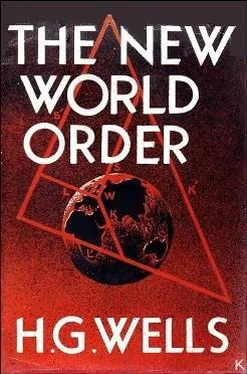
![Герберт Уэллс - The War of the Worlds [С англо-русским словарем]](/books/26611/gerbert-uells-the-war-of-the-worlds-s-anglo-thumb.webp)

